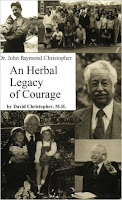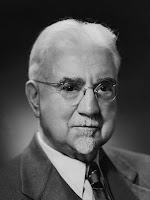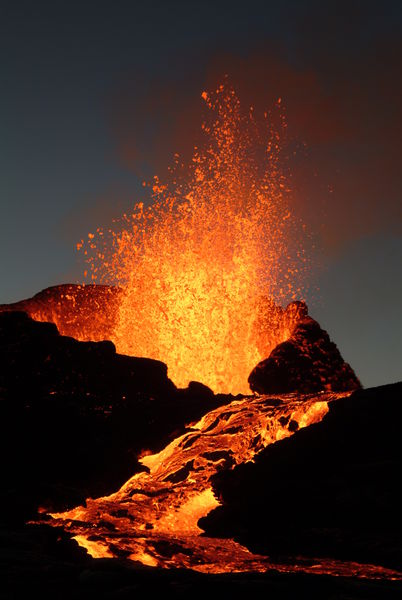Welcome to the fun month of Herbology!! :-)
I'm so excited to share a little bit of one of my passions! And we will have so much fun on Thursday!
The goal this month is for you to become a budding "mini-herbalist" with a few things up your sleeve to help yourself.
Apprentice:
This is where you get to learn a little of the background of the use of herbs.
Do all of the following:

1) Read "An Herbal Legacy of Courage"
2) Read the following scriptures:
a) Doc & Cov 42:43
b) Doc & Cov 59: 16-20
c) Alma 46:40
d) Ezekiel 47:12
e) Word of Wisdom (Doc & Cov 89); especially v. 10-11
3) Study a little about medicine in these civilizations; take notes about each (what herbs did they use, similarities, differences, etc):
a) Egyptians
b) Greeks
c) Romans
d) Native Americans
e) Chinese
f) Ancient Israel (Israelite)
f) any others that you're interested in
4) Read pages 130-131 from "
Daughters in My Kingdom" (it is a Relief Society book - your mothers should have this & can be found at lds.org) Read the section "Gifts of the Spirit"
5) Answer the following questions:
- What is herbology or herbal medicine?
- What's the difference between Medicinal and Culinary herbs?
- What the difference between an herb and a spice?
- What plants did the following pharmaceuticals come from:
a) aspirin
b) Digoxin (used to treat cardiac disease)
c) morphine
d) codenine
See if you can find 5 others.
- According to the scriptures, what is an herb?
Fun Facts:
Did you know:

- Joseph Smith used herbs and didn't like conventional doctors of the day?
- Willard Richards (was in Carthage Jail with Joseph & Hyrum Smith) was a doctor of herbs, a Thomsonian doctor (Samuel Thomson was an herbalist and taught others how to do what he did - thus the name Thomsonian doctor).
- Brigham Young planted an herb garden at his house in Salt Lake (Lion House) and frequently used herbs.
- There's an herb whose common name is after Brigham Young because he used it often - Brigham's Tea (it's also called Mormon Tea).
- Marshmallows were originally made from the marshmallow (mallow) plant?
 For the fun part!!!
For the fun part!!!
If you feel inclined, wear Harry Potter attire just for Apprentice :-) We'll be doing fun things!
Bring, if you have them, garden gloves.
Geography:
Memorize the map of the Middle East.
Journeyman
This is getting down to the fun herbal learning. I'm really excited about this part because you get to learn about some herbs that I love to use and have amazing stories from using them! :-)
Herbs have different medicinal and/or nutritive qualities. The herb to use depends on the situation they are being used for. Some of the qualities are listed below. Please copy these terms on your notecards:
1) Ointment or salve - a smooth oily preparation that is rubbed on the skin for medicinal purposes or as a cosmetic.
2) Infusion - Herb that has boiling water poured over and allowed to steep for 20 min to 4 hours; it pulls the nutritive and/or medicinal qualities from the herbs into the water which is assimilated quickly.

3) Extract - A liquid solution of herbs and a medium; medium can be vinegar, glycerin or alcohol (note: the alcohol solution has the longest shelf life and is generally used externally only)
4) Poultice - A paste made of herbs, clays, etc, and water or vinegar and applied to the skin
5) Analgesic - Herbs used to relieve pain when taken internally
6) Anodyne - Herbs used to relieve pain when applied externally
7) Antiemetic - Herbs that lessen and prevent or relieve vomiting
8) Antiperiodics - Herbs used to relieve malarial-type fevers and chills
9) Antiseptic - Herbs to prevent, resist and counteract infection
10) Aromatic - Herbs that have a pleasant and/or distinctive smell
11) Astringent - Herbs that cause a contraction or tightening of cell walls (particularly skin); used to protect the skin and reduce bleeding from minor abrasions
12) Cell Proliferants - Herbs that promote rapid healing and restoration
13) Condiments - Herbs used to season or flavor foods
14) Demulcent - Herbs that are soothing and protective internally to irritated and inflamed tissues
15) Emollient - Herbs that are softening, soothing and protective to external tissues
16) Nutritives - Herbs that are nourishing and building to body tissues
17) Tonic - Herbs that stimulate nutrition and increase tone, energy, vigor and strength
 Do the following
Do the following:
1) Answer the following questions:
a) Who is Carl Linnaeus and what contribution did he make to the scientific community?
b) Why is it advantageous to use the Latin term versus the common name when referring to herbs?
2) What is the difference between herbal infusions and tea (what is the difference between black tea and herbal tea/infusion)?
3) Find and name one herb for each of #5-17 above (Hint: Google "What is an emollient herb")
4) Look up (google) John Widstoe - who was he?
Read this quote from Elder John Widstoe:

"Herb Infusions. Infusions of herbs or herb teas are used in many countries of Europe. In France one may be served “infusion” of dried leaves of the verbena, mint and many herbs or the flowers of camomile, orange, or linden trees, much more frequently than the real China or India tea. A consequent improvement in health may definitely be noticed. They act as a tonic to the system and prove very beneficial. Every one remembers the hop tea, dandelion or camomile teas of grandmother’s day which were given as the annual spring tonic. There are many times when warm (not too hot) herb drinks are indicated and desirable."

4) From the following list (or ones of your own choosing), choose 5-6 herbs/spices. Research them. Find out their Latin names (please email me if you need help on this one). Memorize them (do the best you can). Find out their medicinal qualities/what they're used for. If it's a condiment (see definition above), what are some things it's used for in flavoring our food. What kind of recipes is it used in? Create a 5-10 minute presentation on these herbs. Be creative.
(Email me the herbs that you've chosen - we're breaking into several small groups to give the presentations so there can be multiple people per herb chosen.)
Cayenne Slippery Elm bark Comfrey
Red Raspberry leaf Marshmallow root Chickweed
Plantain Ginger root Hawthorne berry
Catnip Mullein Garlic
Peppermint Cinnamon Basil
Thyme Oregano Rosemary
Chives Cloves Turmeric
Onion Ginseng Wormwood
Frankincense Myrrh Burdock root
Chamomile Echinacea Oak bark
Elderberry Horsetail grass Brigham's tea (Mormon tea)
Mustard Stinging nettle Yarrow
St. John's Wort White Willow Bark Yellow Dock

We will be making an ointment in class! It is a skin healing ointment.
Challenge/Bonus (prize to whomever does this!):
From this list of ingredients in the ointment, why did I use that particular herb:
Comfrey
Plantain
Yarrow flowers
Chickweed
Marshmallow
Calendula flowers
***I will need to have an email by Tuesday night if you think you're going to Journeyman class on Thursday so I can get the ointment process started based on how many there will be. :-) Thank you! ***
Also, those who are doing the Journeyman level of Eureka, you will need to do Chapter 2 of Beginner's Guide to the Universe in order for Sister Fontano to stay on schedule with her lessons!





























